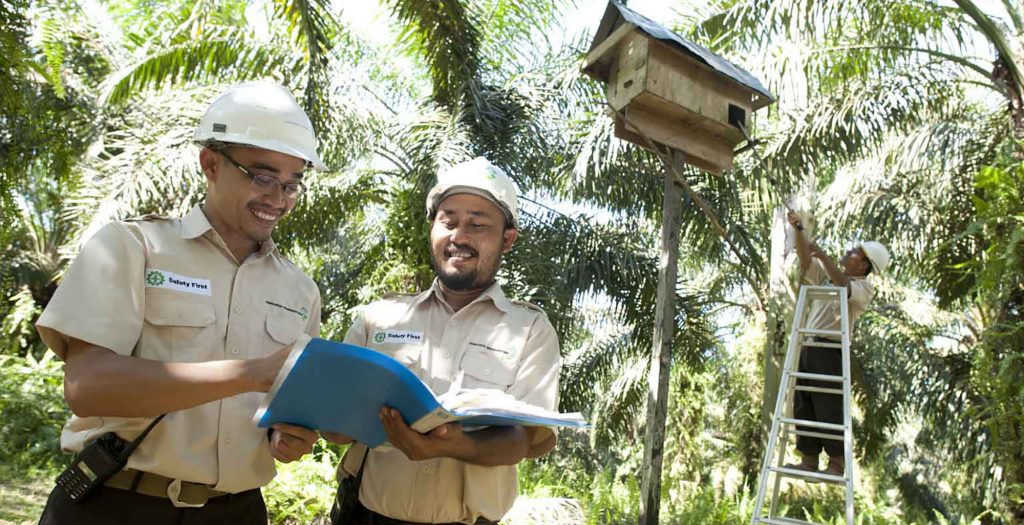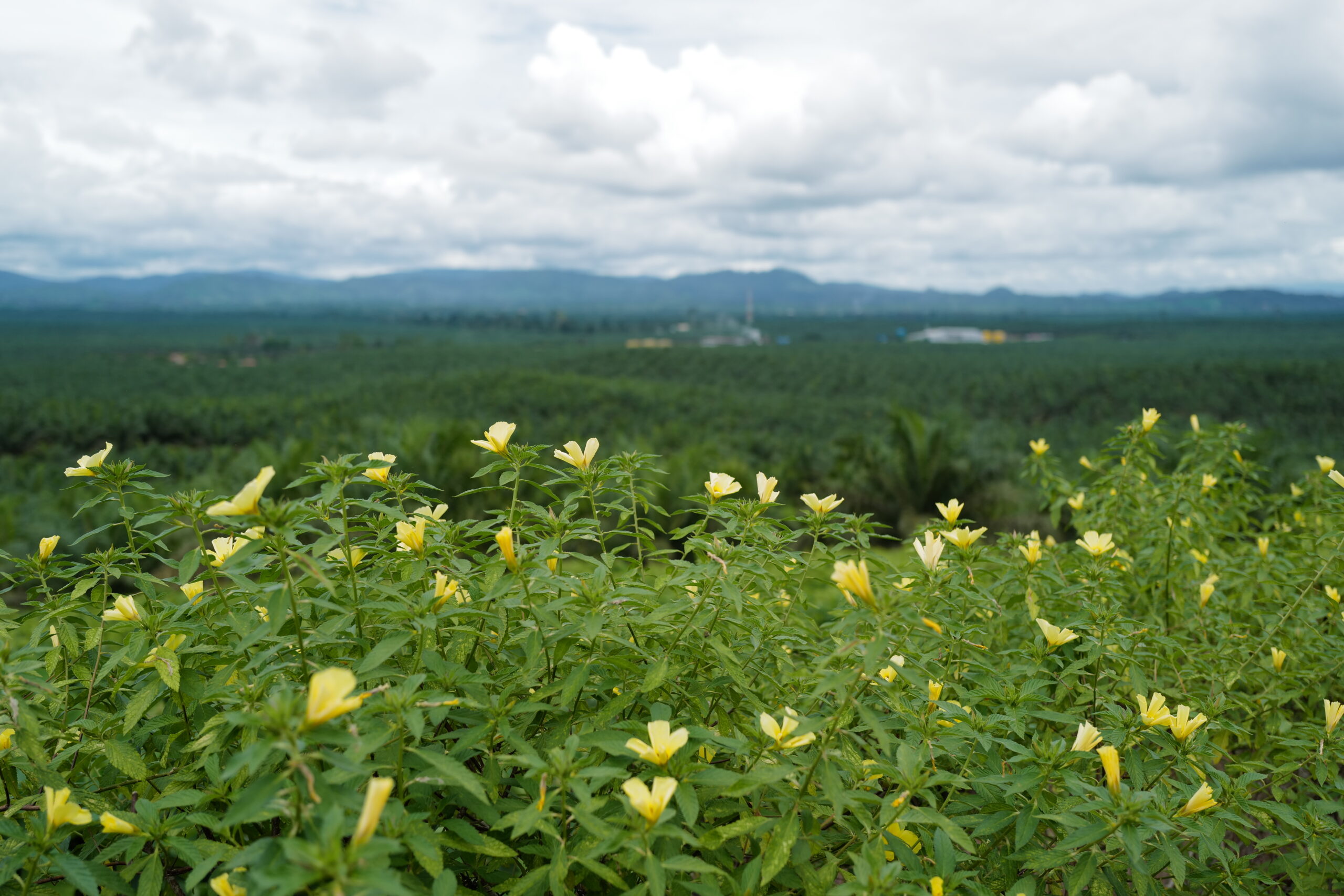Management of Chemical & Pest – Commitment to reduce our Impact (Hazardous Chemicals & Pesticides)

In its application in the field and storage, we minimize contamination and pollution from fertilizers, pesticides and other chemicals, this commitment applies to all our suppliers. The use of agrochemicals is intended to maintain soil fertility and high yields. For this reason, we are in the process of using 100% bio-insecticide and natural enemies to control oil palm pests.
Biological control by utilising natural enemies from predators, parasitoids and entomopathogens that will naturally suppress pest populations so that there is a balance and does not pollute the environment. Technical control will be implemented as the last alternative if natural and biological control is unable to significantly suppress pest populations. For support the breeding and conservation of insect predators and pest parasitoids Palm Oil Leaf-eating Caterpillar (UPDKS) We make efforts by propagating useful plants that are home to predatory/parasitoid insects in the field. Some of the plant species used in this conservation are Antigonon leptopus, Turnera subulata, Turnera ulmifolia, Euphorbia heterophila, Nephrolepis sp., Celosia sp., and Cratoxylum spp.

Conservation Area for Parasitoids/Pest Predators UPDKS
As responsible member of RSPO we abide by Indicator 7.2.5 of the RSPO P&C 2018, which does not permit the use paraquat as well as other pesticides categorised as Class 1A or 1B by the World Health Organisation, or those that are listed by the Stockholm or Rotterdam Conventions, unless in exceptional circumstances. This commitment applies to all our suppliers.
List of Chemical & Pesticides *)

*) Effective per 2022